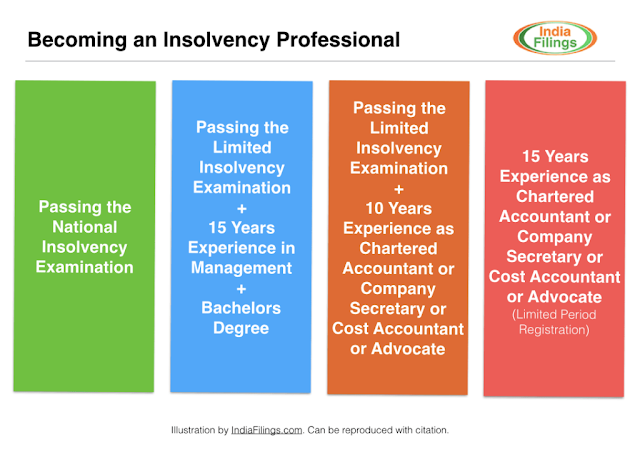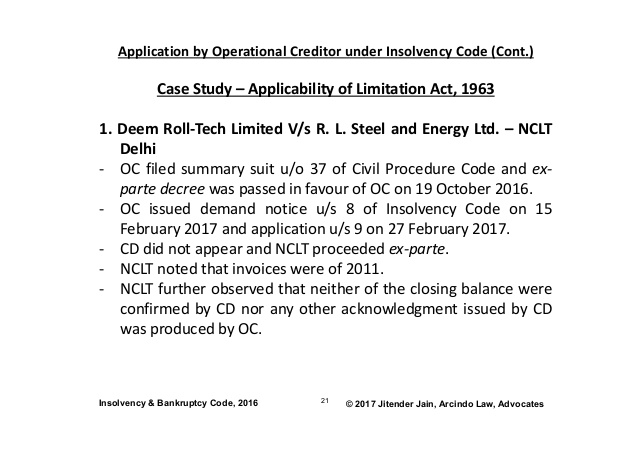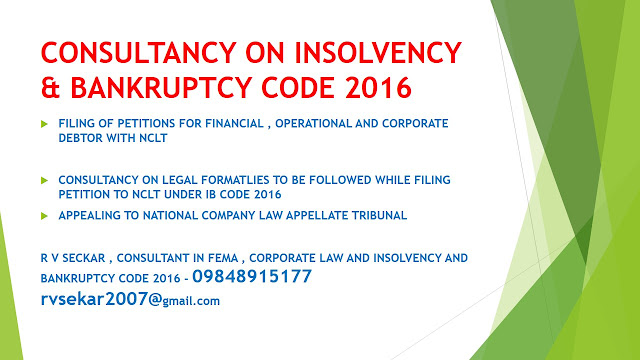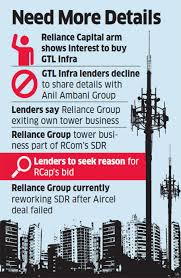Monitoring the performance of insolvency
professionals under the Insolvency and Bankruptcy Code, 2016 -Discussion Paper
by IBBI
Insolvency And
Bankruptcy Board Of India (IBBI) has brought a discussion paper on the subject
of monitoring the performance of insolvency professionals under the
Code. The discussion paper is limited to the role of IPs in corporate
insolvency resolution processes (CIRP).
According to the
IBBI public consultation enables collective choice and imparts relevance and
legitimacy to decisions. Accordingly, the Board invites comments, suggestions
and feedback covering modifications / additions / deletions / regrouping in the
contents in Forms A to H and timing of filing.
The comments and
suggestions may be mailed at ea-wtm.rm@ibbi.gov.in by 12th May, 2018 in the prescribed format:
THE HIGHLIGHTS OF THE DISCUSSION PAPERS ARE
AS UNDER:
The Insolvency and
Bankruptcy Code, 2016 amends the laws relating to reorganisation and insolvency
resolution of corporate persons, partnership firms and individuals in a time
bound manner for maximisation of value of assets of such persons, to promote
entrepreneurship, availability of credit and balance the interests of all the
stakeholders.
The Insolvency and
Bankruptcy Code, 2016 (Code) provides for a class of regulated professionals,
namely, Insolvency Professionals (IP), who constitute one of the four key
pillars of the insolvency regime, other three being the Adjudicating Authority,
the Insolvency and Bankruptcy Board of India (Board), and the Information
Utilities. The IPs play an important role in resolution, liquidation and
bankruptcy processes of companies, LLPs, partnership firms and individuals.
SECTION 20 OF THE IBC
2016
Section 20 of the
Code requires an IP, who is acting as interim resolution professional, to make
every endeavour to protect and preserve the value of the property of the
corporate debtor and manage the operations of the corporate debtor as a going
concern.
SECTION 20 OF THE IBC
2016
Section 23 requires
an IP, who is acting as resolution professional, to conduct the entire
corporate insolvency resolution process and manage the operations of the
corporate debtor during the CIRP period. The IP, either as interim resolution
professional or as resolution professional, exercises powers of the Board of
Directors of the corporate debtor undergoing CIRP.
THE SPECIFIC DUTIES AND
RESPONSIBILITIES OF AN IP
The specific duties
and responsibilities of an IP during CIRP are detailed in the Code and
regulations made thereunder.
The Code makes
provision for monitoring of their performances. It empowers the Board to
perform the following functions, among others:
BOARD TO MONITOR THE
PERFORMANCE OF IPAs, IPs & IUs
a. monitor the
performance of insolvency professional agencies, insolvency professionals and
information utilities and pass any directions as may be required for compliance
of the provisions of this Code and the regulations issued hereunder; [(section
196(1)(g)]
b. call for any
information and records from the insolvency professional agencies, insolvency
professionals and information utilities; [(section 196(1)(h)]
c. collect and
maintain records relating to insolvency and bankruptcy cases and disseminate
information relating to such cases; [(section 196(1)(k)]
In order to
facilitate the IBBI to monitor the performance of the IPs, the Code casts
obligations on them to submit certain information. The examples are:
RESOLUTION PROFESSIONAL
TO FORWARD ALL RECORDS TO IBBI
a. The resolution
professional shall forward all records relating to the conduct of the corporate
insolvency resolution process and the resolution plan to the Board to be
recorded on its database. [section 31(3)(b)]
b. Every insolvency
professional shall submit a copy of the records of every proceeding
before the Adjudicating Authority to the Board as well as to the
insolvency professional agency of which he is a member. [section 208(2)(d)]
c. A professional
member shall submit information, including records of ongoing and concluded
engagements as an insolvency professional, in the manner and format specified
by the Agency, at least twice a year. [Para 16 of the Model Bye-laws of an
Insolvency Professional Agency]
6. In order to
facilitate and submission of records by IPs and monitoring of their
performance, the Board proposes, in consultation with the Insolvency
Professional Agencies, to provide a platform for online filing of eight forms
along with records at specified times as under:
FORMS TO BE FILED BY
IRPs
.l
a. The forms shall be filed electronically.
b. Three forms (A, B
and C) shall be filed by Interim Resolution Professional.
FORMS TO BE FILED BY
IRPs
Four forms (D, E, F
and G) by the Resolution Professional, and one event-specific form (H) by IRP
or RP, as the case may be, depending upon the period of the event.
c. The forms shall
be certified and filed by the Insolvency Professional of the respective
corporate debtor undergoing CIRP by affixing DSC or after e-signing.
d. The forms shall
be filed with a nominal fee.
e. The forms shall
be filed within the specified time.
f. Late filing, inaccurate filing,
and incomplete filing shall be construed as noncompliance with the directions
of the Board.






















